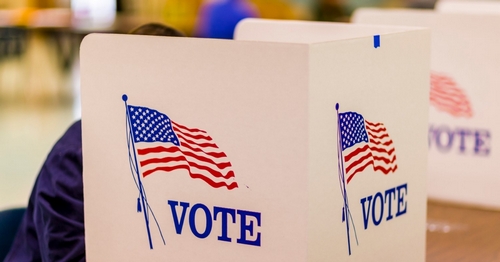Israeli business news outlet Calcalist reported the development on Aug. 19. According to the report, the authority has launched dedicated industry teams, some of which specialize in blockchain companies.
The Capital Market, Insurance and Saving Authority, a division of Israel’s Ministry of Finance (MoF), is looking to accelerate the process of procuring licenses for blockchain and fintech companies in the country.
According to the report, the authority is hoping to foster local competition by licensing more fintech companies.
Moshe Barkat, who was appointed as the supervisor for the department back in 2018, remarked:
«Business and technological innovation and the relationship with the industry are the basic principles that guide the Authority in its operations. The Authority is engaged in the licensing and regulation of fintech companies on a regular basis, including digital insurance companies, P2P platforms and credit providers, digital wallets, blockchain-based fintech ventures and other payment services providers.”
Additionally, preliminary research by the Israeli Securities Authority has shown that dozens of companies, at a minimum, could receive a work permit in Israel with minimal changes to their business models or technologies, per the report.
Bitcoin advocates go after Israeli banks
As previously reported by Cointelegraph, the nonprofit Israel Bitcoin Association has purportedly started a legal petition to make the Bank of Israel disclose local banks’ policies pertaining to crypto. An unnamed cryptocurrency investor has also started a class action suit against the Israel Bank Hapoalim, since they would not accept money deposits that were generated via Bitcoin investments.

The complainant’s lawyer, Lior Lahav, emphasized that this banking issue is a problem affecting tens of thousands of investors in the country:
“There are more than 70,000 bitcoin investors in Israel who are facing the same problem from their banks … 99 percent of them are ordinary people that invested in a thing that’s completely legal.”
Is Bitcoin a Safe Haven for Your Money?
In the summer of 2019, the 10-year minus 3-month yield curve inverted for the first time in 13 years. During the time of the inversion, Bitcoin’s price hit all-time highs for the year. The previous inversion in 2006 was followed shortly thereafter by the global economic crisis of 2008.
On Jan. 3rd 2020, United States President Donald Trump ordered the killing of Iranian general Qassem Soleimani by drone strike. The Iranian government retaliated on Jan. 8th by launching missiles at two American bases in Iraq located near Baghdad.
Throughout the Iran-U.S. conflict, Bitcoin’s price spiked upward by 21%, from just below $7,000 to nearly $8,500.
The foreshadowing of another global economic crisis and the threat of further international conflict has given rise to an important question: is Bitcoin a safe haven asset?
To investigate this narrative, we sought the opinion of world-renowned economist Campbell Harvey, who is best known for theorizing yield curve inversions as accurate signals of oncoming recessions. Harvey is now the J. Paul Sticht Professor of International Business at Duke University, where he has been teaching a course on blockchain and cryptocurrencies for seven years. In this interview, he discusses whether “Bitcoin is a safe haven” in the context of both war and recession. He also details a vision of the future in which digital tokens could undermine the global hegemony of the US Dollar.
Please check out the video and subscribe to our YouTube channel!
IRS Laughs Off Coinbase User’s ‘Surveillance Conspiracy’ in Tax Reporting Case
The United States Internal Revenue Service (IRS) has argued that its summons on major American crypto exchange Coinbase is indeed legitimate in a recent filing.
Per a Nov. 15 filing, the U.S. tax agency told a California federal court that its investigation of Coinbase customer William Zietzke is completely legitimate.
Zietzke claims summons was issued outside IRS’s authority
Zietzke is attempting to quash the summons issued to Coinbase Inc. in June, which requested that they hand over his financial records pertaining to his 2016 return. Zietzke claimed that the IRS’s summons was too broad of a request, as it was not restricted to the 2016 tax year only. He added that the IRS wanted to obtain records that could compromise his financial and personal security if lost by the government.
However, the IRS was not impressed and said in a filing that the Washington resident was unable to show any reason why the summons should not be enforced. The IRS also laughed off Zietzke’s vague allegations, where he insinuated that the tax agency is developing a database, so they can track anyone who owns virtual currency accounts. In the filing, the agency wrote:
“Rather than allow the IRS to summon the information it needs from Coinbase, Mr. Zietzke invents an IRS surveillance conspiracy and argues that the IRS has all the relevant information it needs to determine whether he is entitled to the refund he claims − that is the limited, sometimes redacted, and ever changing information he has provided.”
The IRS added:
“By the summons at issue, the IRS seeks information to do exactly what Congress charged it to do: make an accurate determination of Mr. Zietzke’s tax liability.”
The IRS further explained that records beyond 2016 were necessary to determine his tax liability because Zietzke claimed a refund based on transactions involving Bitcoin he obtained in 2011.
Tax clarity for cryptocurrencies
In November, the Democratic 2020 presidential candidate Andrew Yang promised to promote legislation on the crypto asset market space by defining what a token is, when a token is a security, and equally important, clarify the tax implications of owning, selling, and trading digital assets, among others.
Back in June, the U.S. Congressman (R-N.C.) Ted Budd testified to the House of Representatives Ways and Means Committee on issues with current tax laws on cryptocurrencies, arguing that the industry needs clear tax regulations.


